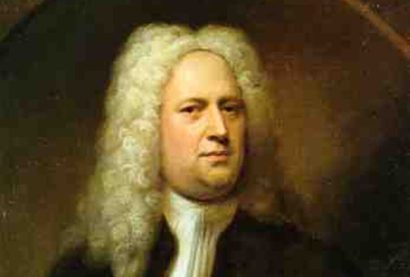George Frideric Handel was most famously known as a composer, but did you know he was also in a sword fight? It's true, and today we'll be covering that infamous duel.
A stubborn start
Born in Halle, Duchy of Magdeburg in the year 1685, Handel's father Georg Händel was against all things music. Despite this, Handel was stubborn, so much so that there are unconfirmed stories of him sneaking a little clavichord into a room at the top of the house he grew up in.
Through his stubborn perseverance Handel soon found himself at a young age studying in Halle underneath the organist Friedrich Wilhelm Zachow. With this training, he eventually went on to accept a position in 1702 as an organist at the Calvinist Cathedral in Halle. During this time he also made acquaintances with Georg Phillip Telemann and even briefly studied law at the insistence of his father.
When his probationary appointment at the cathedral ended in 1703, Handel chose to move to Hamburg. Here he took a position as violinist and harpsichordist at the Oper am Gänsemarkt. And it’s also here where he met Johann Mattheson, the man who almost killed him. Most famously known as a music theorist, Mattheson was a man of many talents, taking lessons from a young age in keyboard instruments, violin, composition, and singing. With these skills, it was only natural that Mattheson would come to compose a number of musical works himself.
One of Mattheson's musical works, Cleopatra, is where the fabled sword fight occurred. During the premier in 1704, conflict arose when Handel refused to relinquish control as conductor back to Mattheson, who was busy singing for one of the scenes. Tempers flared and it wasn’t long before one of them challenged the other to a duel outside.
The sword fight begins
A crowd began to gather as their swords swung left and right, clanking over sounds of birds and people murmuring. The two men deftly handled their swords, exchanging blows in a flurry of strikes. At the height of the duel, Mattheson found an opening and lunged his sword toward Handel's exposed chest. Certain that he was mortally wounded, the crowd gasped in surprise at the sight of Handel still standing, seemingly unscathed. It turned out a large metal button on his cloak deflected the strike, saving his life from what should have been certain death.
The men came to their senses at this, deciding to end the conflict and even reconcile. Over the years the two men became life-long friends, sending letters back and forth long after they went on their separate journeys.
A life well lived
Over the course of his life, Handel would go on to write 42 operas, 25 oratorios, more than 120 cantatas, and many more musical works before passing away in 1759. Had it not been for that metal button of his, countless numbers of those masterpieces may have never existed.
So, next time you’re listening to a piece by Handel, I hope you think to yourself:
Thank goodness for that metal button.
Photo – bit.ly/2SM8H6d
For more stories like this, subscribe to our newsletter!

